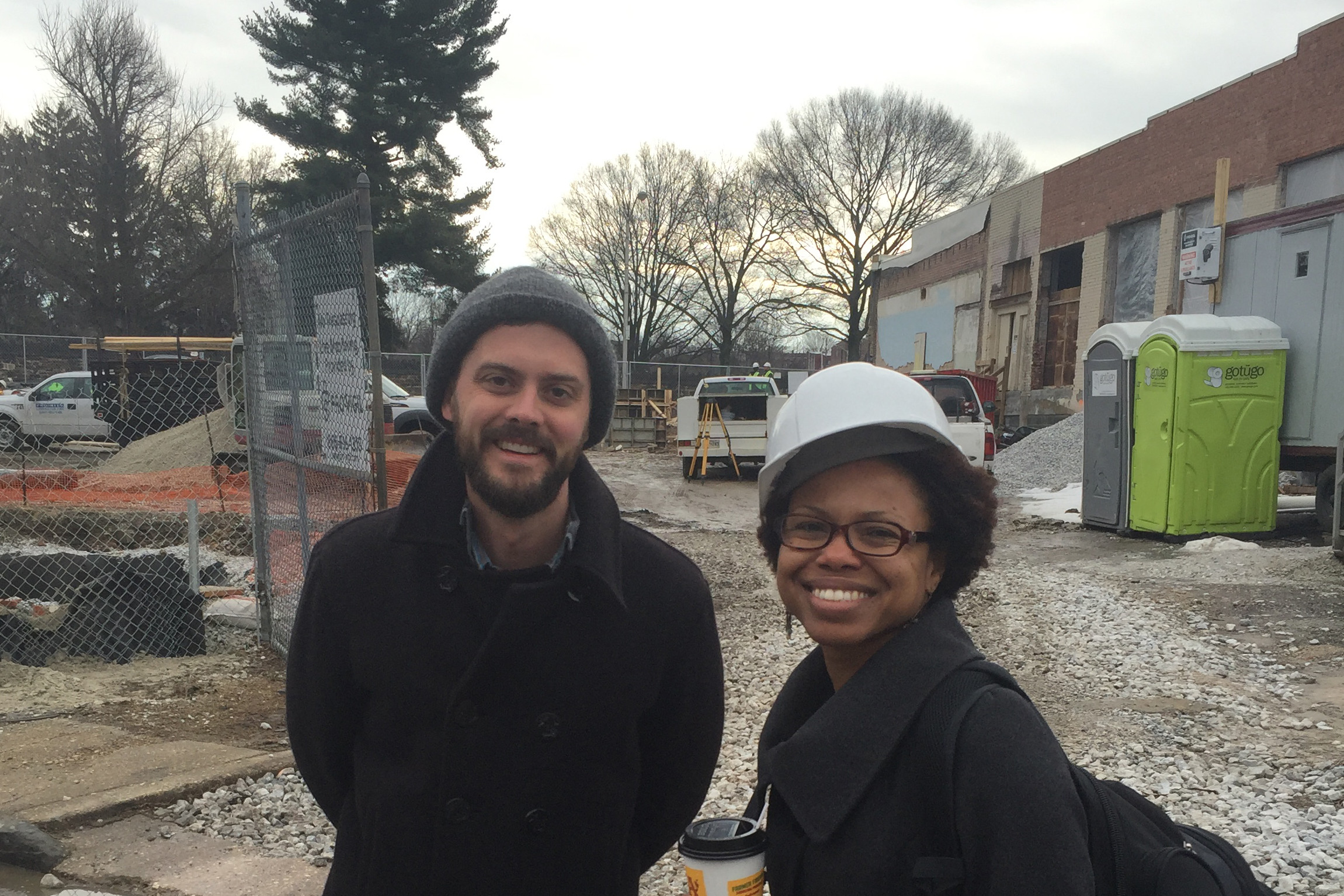
At the core, every Makerspace isn’t about technology – it’s about people. The idea of affordable access to tools gets people in the door, but the long-term appeal lies in joining a network of other folks interested in making. Building that kind of community from scratch is tough, so we started searching out local makers well in advance of having any physical space ourselves.
Baltimore itself is a maker city. In the mid-late 1800s, mills along the Jones Falls River produced more sailcloth than any other city in the world. Heavy industrial manufacturing began in the Victorian era, with companies like the Baltimore and Ohio Railroad and Crown Cork and Seal driving mass industrial employment. By World War II, Bethlehem Steel, Lockheed Martin, and Fairfield Shipyards were employing hundreds of thousands as they churned out boats and bombers for the war effort. Industrial employment peaked right after the war, and has been declining ever since.
That doesn’t mean manufacturing has gone away, however – it has just taken on a new shape. Since 2003, small manufacturing in Baltimore (businesses that are sole proprietorships) has grown over 60%. Making things has become a smaller, nimbler, cleaner, more highly-skilled business, as American-made products find and exploit niches that are poorly served by overseas factories. New retail outlets and financing tools, from Etsy to Kickstarter, have made it easier than ever to launch a bedroom business and scale into traditional production. As an economic development engine, this is the promise of Makerspaces – flexible factories that can make small production runs and mass customization affordable.

I started by searching out all of the Makerspaces I could find in Baltimore. There is already a rich and varied landscape of shared fabrication space in town, and Open Works isn’t interested in displacing any of them. That initial survey turned up quite a few, many of which are focused on specific crafts: Baltimore Clayworks, Baltimore Jewelry Center, Baltimore Node, Baltimore Print Studios, Baltimore Underground Science Space, FabLab Baltimore, The Foundery, and the Station North Tool Library. I toured through people’s spaces, learned about their programs, and started to get to know the local maker scene. After a great many discussions with a great many people, the Industrial Arts Collective came together for the first time in August, 2014.
We met for beers at the Station North Tool Library, an awesome community resource right around the corner from Open Works. That first meeting bubbled with a lot of energy – many of the Makers there hadn’t been in the same room before, and ideas began growing organically as the conversation flowed. We started hanging out once a month in different groups’ spaces for workshop activities and drinks, turning the whole city into our Makerspace. Eventually, we launched a website, and then, last August, a pop up shop.

The Made in Baltimore pop up shop ran for two months in a gallery on North Avenue, featuring over 75 local makers. Products ranged from 3D printers to bikes to furniture to clothes to wallets, and it was free and un-juried to participate in. The first one was so successful we put on another one for the holidays at the historic Women’s Exchange in midtown. These pop-ups answered a core need for local producers: collaborating to build up the maker economy in Baltimore so small manufacturers could really make a living from their craft. It also greatly expanded the IAC network from an initial group of nine Makerspaces to almost 150 small manufacturers, Maker educators, and university spaces.
The IAC has dozens of precedents around North America, including in Portland, Toronto, Brooklyn, and Indiana. Makerspaces are uniquely equipped to build on the buy-local movement and open up new opportunities for employment and entrepreneurship. Baltimore’s most famous maker entrepreneur, Kevin Plank, started Under Armour on a sewing machine in his grandmother’s basement. What if there had been a makerspace to help him scale up even faster?

Creating a great Maker community in Baltimore didn’t start with the IAC, and it certainly won’t stop there, either. There are lots of groups working to build up sectors of the creative economy: Startup Soiree, Impact Hub, Creative Mornings, SunSets, Alloverstreet, Bmore Art. There are a couple of incubators and markets popping up around the city to help food entrepreneurs achieve liftoff: Mt. Vernon Marketplace, R House, Food Hub, and B-More Kitchen. Advanced manufacturing and tech hardware companies are setting up shop: Blueprint Robotics, Elevated Element, Potomac Photonics, MAP-C, City Garage, BuildClass. Social entrepreneurs are figuring out ways to build out triple-bottom-line businesses: Rowdy Orbit Impact, Surface Project, DETAILs, and Baltimore Corps.
Open Works isn’t developing in a vacuum. We are fitting into a vast and growing Maker ecosystem around Baltimore, each one serving a different niche. There is room for all of us to learn from one another, collaborate on building out this new economy to its fullest potential, and keep inviting in new people to participate in making.
Much the same thing could be said about any city in America – each full of people and assets that are unique to its place in the world. Mapping those assets, reaching out, and establishing relationships with the makers in your town is the first step to building a community and a durable maker economy. It can start slow and easy – a Meetup at a bar or a Facebook group – and gain strength over time.
In the next installment of Made in Baltimore, we’ll discuss how we raised the capital to build the space to house all of our new maker friends.
Construction Update
Since the last post, we have:
1. Poured the retaining walls for the sidewalks up to the main entrance.
2. Started cutting the holes in the floor slab for the stairs and elevator.
3. Continued plumbing, electrical, and HVAC rough-in.
4. Measured and ordered all of the door and window frames.





ADVERTISEMENT
Join Make: Community Today








